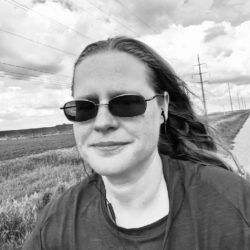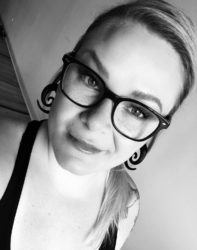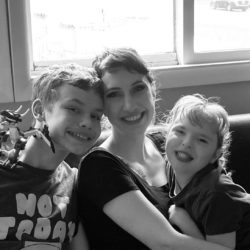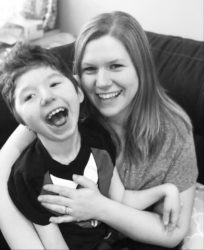PHS Top Spots: Blog, Online Group, or Podcast
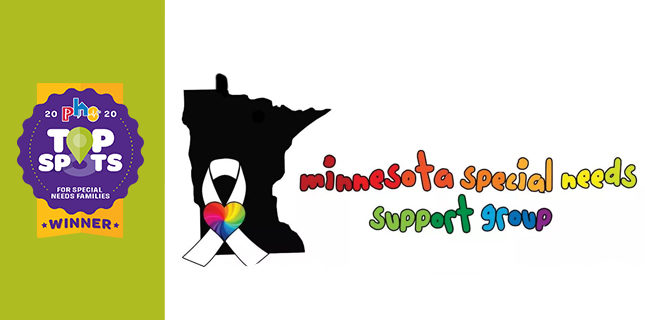
PHS recently announced our list of 2020 PHS Top Spots Winners. While we are just as excited to celebrate these amazing organizations as we have been in past years, the majority of celebrations for these recipients will be taking place virtually. The current social distancing recommendations gives us an opportunity to share more insights on our blog as to what makes these groups and organizations stand outs on our 2020 Top Spots list.
PHS Top Spots Winner: Favorite Blog, Online Group or Podcast
“The recognition is incredibly humbling and validating!” said Linnea Lindstrom, one of the founders and administrator of the Minnesota Special Needs Group in response to being named a 2020 PHS Top Spot. “The group started as simply as four people bonding together for mutual benefit and has grown to encompass thousands. To know it’s now been voted as a top resource is astounding!”
Linnea’s modest response is indicative of the community and support the group provides for its members.
Meet the Team
Amy Reese, Dana Shelso and Linnea Lindstrom met in an online support group more than a decade ago. They wanted something more specific to help them navigate their children’s diagnosis and care.
In 2011 they formed their own group and found a community searching for support and connections as they care for their children with medical complexities.
Katie Jarabek later joined the admin team to support the community’s growing numbers.
What Unique Feature Makes Your Group a Standout?
Minnesota Special Needs Support Group is dedicated to helping Minnesota families of special needs individuals find local educational, medical and social resources as well as support. A part of fulfilling that mission is a database of information compiled and maintained by Amy.
This database of files offers a variety of resources from medical equipment suppliers and instructions for DIY projects to how-to guides ranging from medical assistance to taxes, as well as doctor and caregiver reviews and recommendations. No legal or medical advice is given but laws and procedures are explained to help members have a better understanding and control of their situation.
Members often will suggest updates to the files based on their experience or their own research. Katie says these files were especially helpful when she moved across the state. “I used the information to set up care for my son. That is how we got set up with PHS too. These resources make decisions easier because you can use the best available information and most recommended resources by people in the group.”
The files are important, but the support from the community is what makes this online group an integral part of their members’ lifestyles. “Most new parents turn to their friends for advice and reassurance,” says Katie. “When you are a parent of a special needs child you can’t ask for advice in the same way, but having this community gives you people to turn to for those daily questions.”
Linnea says the community and the friendships she has made in the group help her to feel more confident in her ability to care for her daughter. “It gives me something to fall back on. I cannot always call a doctor for those little questions or concerns.”
Wins: How Has This Group Gone Above and Beyond to Serve the Community?
A powerful outcome of this community of support is the members’ deep awareness of rare medical conditions and procedures. As a result, this group has been able to help parents and medical teams more successfully diagnosis underlying conditions.
The admin team shared a story of a child who slipped into a coma after having a feeding tube put in. The health care team was unable to find a medical reason for the coma and began to investigate the homelife of the child based on increased levels of ammonia found in the child’s lab results.
Team admins listened to the symptoms as described by the parents and thought the coma might be related to the child’s liver. The probability was a long shot, but it turned out to be accurate. The change in diet due to the feeding tube triggered the medical emergency. Had it not been for the group and their shared experiences, the story could have had a very different outcome.
Linnea and Dana have a similar success story. Their kids have different diagnoses but are similar in many other ways. During a conversation with Dana, Linnea suspected her daughter’s symptoms might be the cause of a tethered spinal cord just like Dana’s daughter.
A tethered spinal cord can be a difficult condition to see, and for a child with special needs it is easy to blame developmental delays on a variety of causes. Their suspicions were confirmed, and Linnea’s daughter received the treatment she needed.
“There are so many times in this group when a small thought has led to a positive outcome,” said Amy.
At PHS, we are thankful for the valuable resources and community Minnesota Special Needs Group provides. Their network helps families access care, resources, and a community of friendships and support.
Join the Group
Linnea has two children with special needs but says that initially she felt she didn’t belong in the group. “Sometimes we feel our situation is not serious enough to feel bad about or grieve for, but that is just not true. This is your experience. It’s important to take it one day or even one minute at a time.”
Minnesota families with special needs are encouraged to join Minnesota Special Needs Group on Facebook. All are welcome, but for privacy reasons, this is a closed group. New members will be asked to answer three short questions.
“There is a misconception that special needs parents are stronger or more equipped to handle difficult situations,” says Katie. “Find help early so you do not become overwhelmed.”
Originally published: December 18, 2020


